
The Majestic Waters of Lake Powell
Lake Powell, nestled in the heart of the American Southwest, is a shimmering oasis that straddles the border between Arizona and Utah. This man-made reservoir, created by the flooding of Glen Canyon, offers a stunning contrast to the rugged desert landscape that surrounds it. With its deep blue waters and red rock canyons, Lake Powell is a paradise for nature lovers and adventure seekers alike. Visitors to Lake Powell can enjoy a wide range of activities such as boating, fishing, and swimming. The lake's extensive shoreline, spanning nearly 2,000 miles, provides endless opportunities for exploration. Houseboating is a popular way to experience the lake, offering a unique chance to wake up to breathtaking sunrises and fall asleep under a canopy of stars. In addition to its water-based attractions, Lake Powell is also home to several notable landmarks. The Rainbow Bridge National Monument, one of the world's largest natural bridges, is a must-see for any visitor. Hiking trails around the lake lead to hidden gems like the Cathedral in the Desert, a stunning natural amphitheater carved into the canyon walls. Whether you are looking for relaxation or adventure, Lake Powell's diverse offerings make it a perfect destination for all types of travelers.
Local tips in Lake Powell
- Book your houseboat or campsite well in advance, especially during peak season from May to September.
- Bring plenty of water and sunscreen, as the desert sun can be intense even on the lake.
- Visit the Rainbow Bridge National Monument early in the morning to avoid the crowds and midday heat.
- Consider renting a kayak or paddleboard to explore the narrower canyons that larger boats can't access.
- Check the weather forecast before heading out, as sudden storms can make conditions on the lake dangerous.
The Majestic Waters of Lake Powell
Lake Powell, nestled in the heart of the American Southwest, is a shimmering oasis that straddles the border between Arizona and Utah. This man-made reservoir, created by the flooding of Glen Canyon, offers a stunning contrast to the rugged desert landscape that surrounds it. With its deep blue waters and red rock canyons, Lake Powell is a paradise for nature lovers and adventure seekers alike. Visitors to Lake Powell can enjoy a wide range of activities such as boating, fishing, and swimming. The lake's extensive shoreline, spanning nearly 2,000 miles, provides endless opportunities for exploration. Houseboating is a popular way to experience the lake, offering a unique chance to wake up to breathtaking sunrises and fall asleep under a canopy of stars. In addition to its water-based attractions, Lake Powell is also home to several notable landmarks. The Rainbow Bridge National Monument, one of the world's largest natural bridges, is a must-see for any visitor. Hiking trails around the lake lead to hidden gems like the Cathedral in the Desert, a stunning natural amphitheater carved into the canyon walls. Whether you are looking for relaxation or adventure, Lake Powell's diverse offerings make it a perfect destination for all types of travelers.
When is the best time to go to Lake Powell?
Iconic landmarks you can’t miss
Best Western View Of Lake Powell Hotel
Enjoy stunning Lake Powell views, comfortable accommodations, and easy access to Page's attractions at this conveniently located hotel.
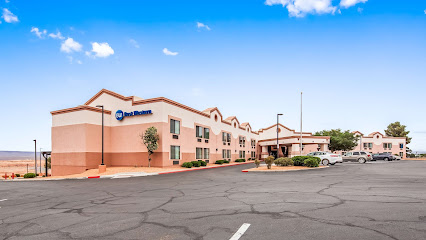
Best Western Plus At Lake Powell
Comfortable hotel in Page, AZ, offering easy access to Lake Powell, Antelope Canyon, and other natural attractions.
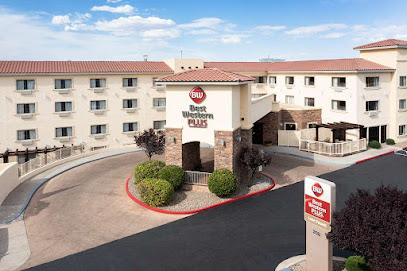
La Quinta Inn & Suites by Wyndham Page at Lake Powell
Comfortable hotel in Page, Arizona, offering easy access to Lake Powell, Antelope Canyon, and Horseshoe Bend.
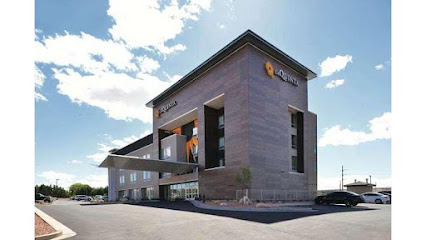
Wingate by Wyndham Page Lake Powell
Modern hotel in Page, Arizona, offering comfortable accommodations and convenient access to Lake Powell and other natural attractions.
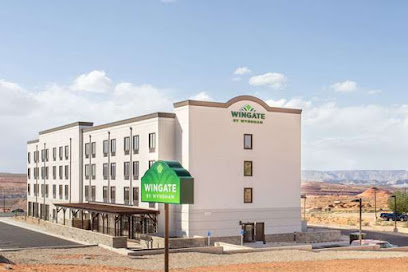
Rodeway Inn at Lake Powell
Affordable comfort in Page, Arizona, perfectly situated for exploring Lake Powell, Antelope Canyon, and the surrounding natural beauty.
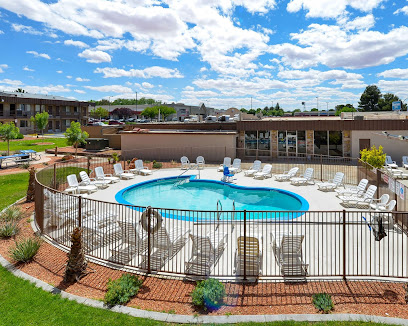
Rainbow Bridge National Monument
Discover Rainbow Bridge National Monument: Awe-inspiring natural beauty and sacred Native American heritage in the heart of Utah's canyon country.
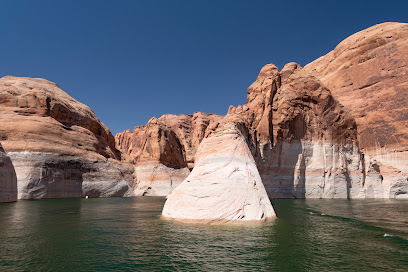
Unmissable attractions to see
Horseshoe Bend
Witness the breathtaking beauty of Horseshoe Bend, where the Colorado River carves a stunning path through the Arizona desert.
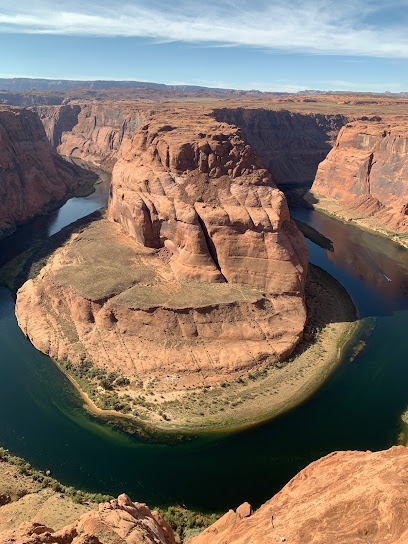
Antelope Canyon Tours - by Carolene Ekis
Experience the breathtaking beauty of Antelope Canyon, a natural wonder with stunning sandstone formations and captivating light beams in Arizona.
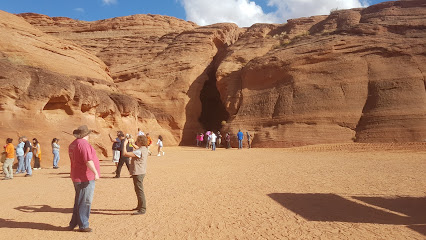
Historic Navajo Bridge
Explore the Historic Navajo Bridge, an architectural wonder offering breathtaking views of Marble Canyon and the Colorado River in Arizona.
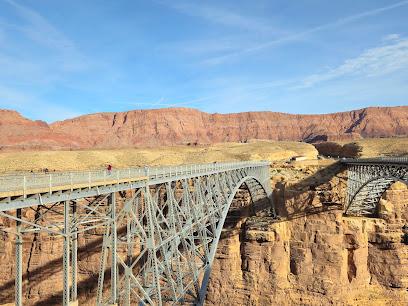
Lees Ferry
Experience the breathtaking landscapes and outdoor adventures at Lees Ferry, a top scenic spot in Arizona's Marble Canyon.
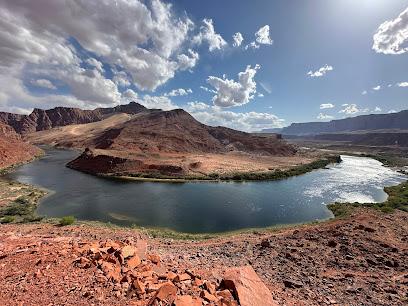
Antelope Canyon
Explore the breathtaking beauty of Antelope Canyon, a natural wonder in Arizona that enchants visitors with its vibrant colors and stunning rock formations.
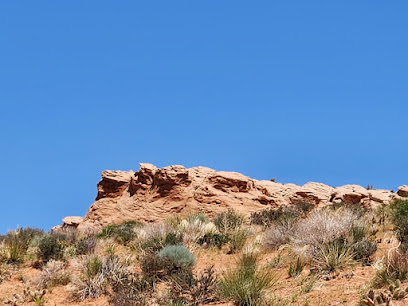
Powell lake look out point
Explore the stunning vistas of Lake Powell and Glen Canyon Dam at Powell Lake Lookout Point, a must-visit historical landmark in Arizona.
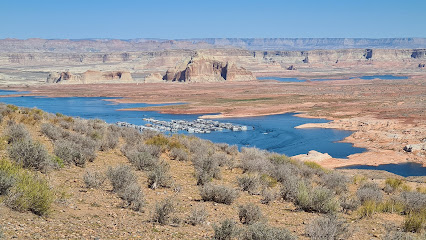
Rainbow Bridge National Monument
Experience the awe of Rainbow Bridge National Monument, a geological marvel nestled in the stunning landscapes of Powell, Utah.
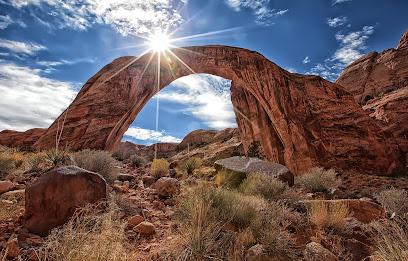
Lees Ferry Campground
Explore the breathtaking landscapes and outdoor adventures at Lees Ferry Campground, a must-visit destination in Arizona's Marble Canyon.

Hite Overlook
Experience breathtaking panoramic views of Lake Powell and the Colorado River from this easily accessible scenic overlook in Utah.
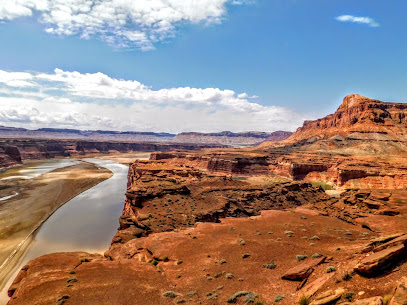
Secret Canyon
Explore the breathtaking beauty of Secret Canyon in Arizona, where vibrant rock formations and serene trails await every adventurer.
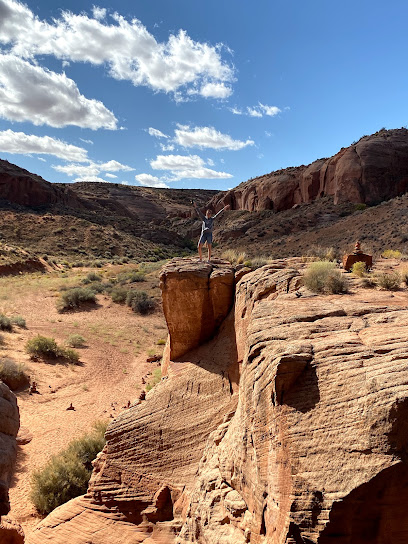
Cathedral Wash Trailhead
Explore the natural beauty of Cathedral Wash Trailhead in Marble Canyon, Arizona – a hiker's paradise with stunning views and vibrant landscapes.

Lees Ferry Launch
Launch your Grand Canyon adventure from Lees Ferry, a historic Colorado River crossing with stunning scenery and world-class outdoor recreation.

Balanced Rock
Experience the stunning beauty of Balanced Rock in Marble Canyon, Arizona, a captivating natural formation offering breathtaking views and rich geological history.

Navajo Bridge Interpretive Center
Explore the Navajo Bridge Interpretive Center for breathtaking views and cultural insights in the heart of Marble Canyon, Arizona.

Waterholes Canyon
Explore the stunning beauty of Waterholes Canyon, a hidden gem in Navajo Nation, offering a serene escape and breathtaking photo opportunities.
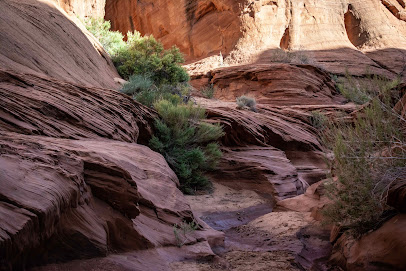
Essential places to dine
Big John's Texas BBQ
Experience authentic Texas-style barbecue at Big John's Texas BBQ in Page, Arizona – a must-visit for meat lovers seeking delicious smoked dishes.
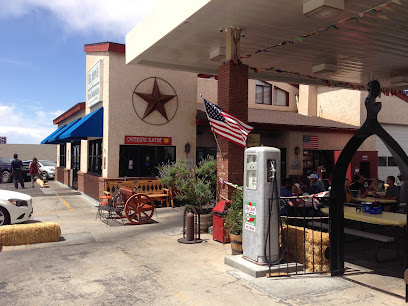
El Tapatio
Experience authentic Mexican cuisine at El Tapatio in Page, Arizona – where every dish tells a story and flavors come alive.
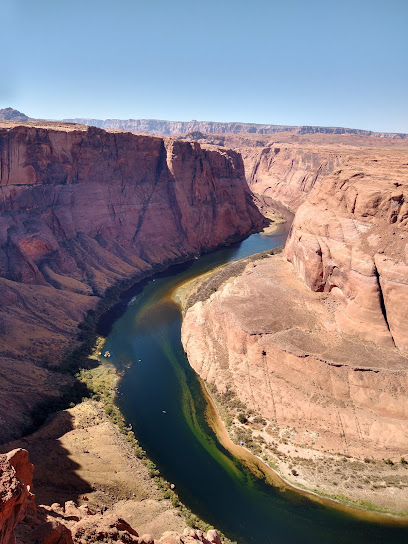
Fiesta Mexicana Restaurant
Discover the rich flavors of Mexico at Fiesta Mexicana Restaurant in Page, AZ—where every meal is a festive celebration.
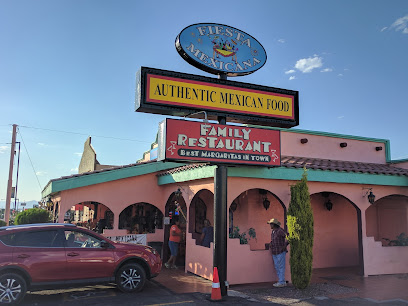
BirdHouse
Savor delicious chicken dishes at BirdHouse in Page, Arizona—an affordable fast food haven for tourists exploring Lake Powell.

Gone West Family Restaurant
Experience family-friendly dining at Gone West Family Restaurant with delicious country food and live music in scenic Page, Arizona.
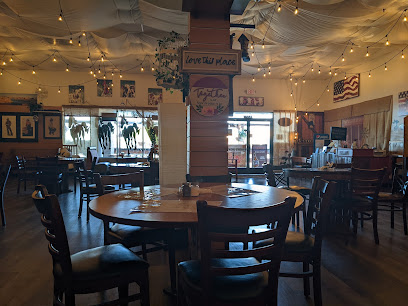
State 48 Tavern
Experience the vibrant atmosphere and diverse menu at State 48 Tavern in Page, Arizona—your go-to spot for delicious American cuisine.
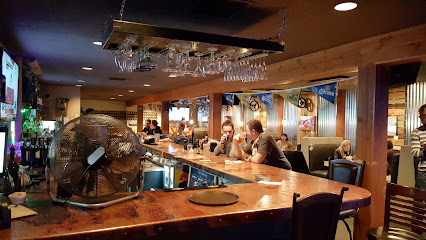
Ranch House Grille
Discover authentic Southwestern American cuisine at Ranch House Grille—perfect for breakfast or lunch in scenic Page, Arizona.
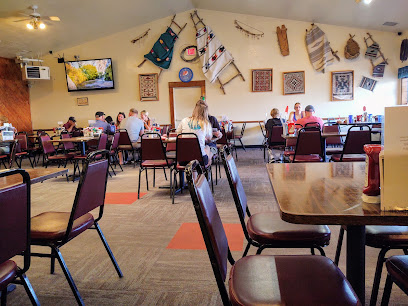
Dam Bar & Grille
Discover the perfect blend of flavor and relaxation at Dam Bar & Grille in Page, AZ – your go-to destination for American grill cuisine.
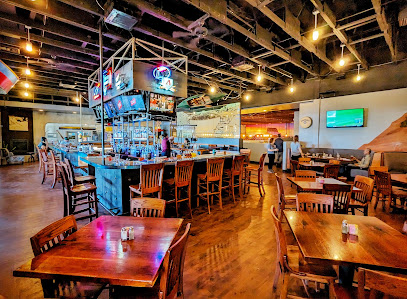
Slackers
Experience mouthwatering burgers and American classics at Slackers in Page, Arizona - where flavor meets adventure.
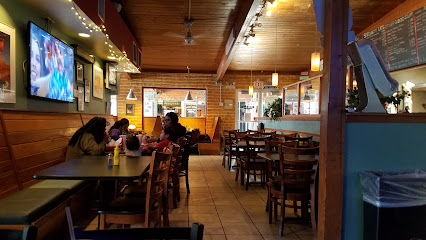
Strombolli’s Italian Restaurant & Pizzeria
Experience authentic Italian cuisine at Strombolli's Restaurant & Pizzeria in Page, AZ - where every bite is a taste of Italy.
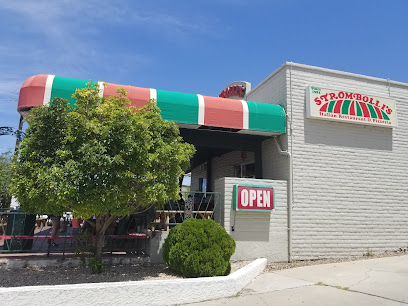
Jack in the Box
Enjoy diverse fast food flavors at Jack in the Box in Page, AZ - perfect for travelers seeking quick bites without breaking the bank.
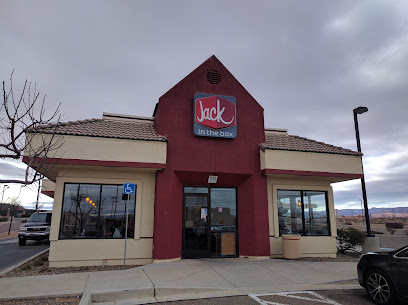
Mandarin Gourmet
Experience delightful Chinese cuisine at Mandarin Gourmet, where flavorful dishes meet family-friendly dining in Page, Arizona.
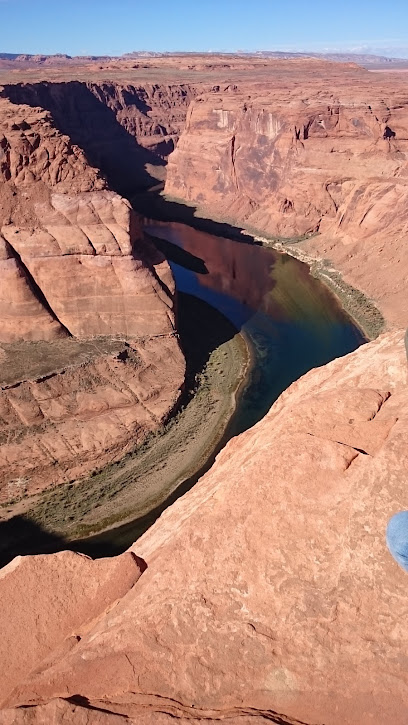
New York Teriyaki
Discover New York Teriyaki: A Taste of Japan in Page, Arizona - Delightful Dishes Await You!
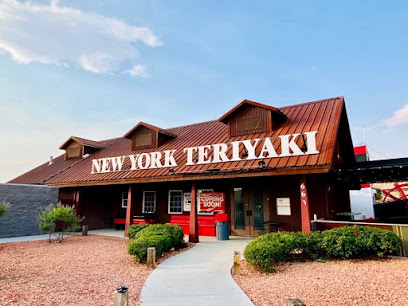
Sunset 89
Experience breathtaking views and delicious cuisine at Sunset 89 in Page, Arizona - a must-visit destination near Lake Powell.
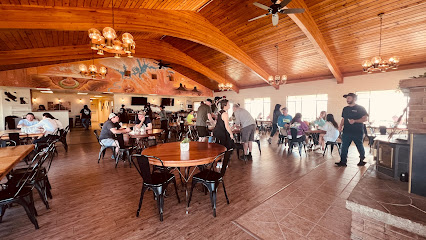
Bonkers Restaurant
Discover Bonkers Restaurant in Page, AZ - where Italian meets American cuisine in a cozy setting perfect for every traveler.
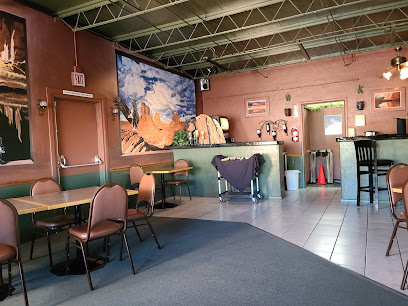
Markets, malls and hidden boutiques
Walmart Supercenter
Discover the ultimate shopping convenience at Walmart Supercenter in Page, AZ, for all your travel essentials and more.

Hot n Sweet Coffee and Donut Shop
Discover the perfect blend of fresh coffee and mouth-watering donuts at Page's beloved Hot n Sweet Coffee and Donut Shop, a treat for every palate.
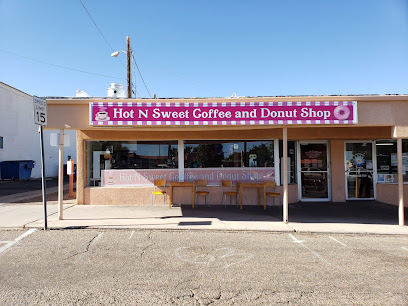
Lake Powell Paddleboards and Kayaks
Discover the beauty of Lake Powell with paddleboard and kayak rentals at Lake Powell Paddleboards and Kayaks, your adventure awaits!
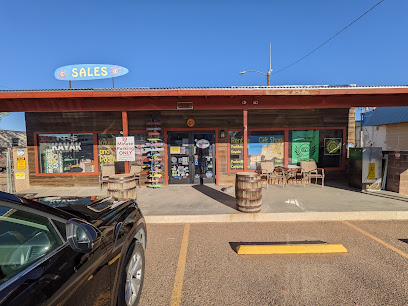
Lake Powell Espresso
Discover the inviting charm of Lake Powell Espresso, a cozy coffee shop in Page, Arizona, perfect for unwinding after a day of adventure.
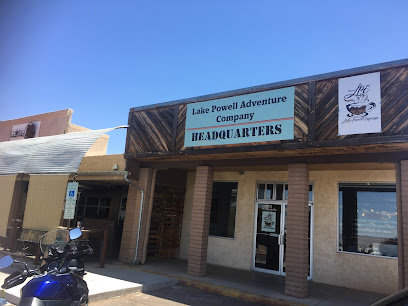
Page Plaza
Discover Page Plaza, a vibrant shopping mall in Arizona with diverse stores and dining options, surrounded by stunning natural beauty.
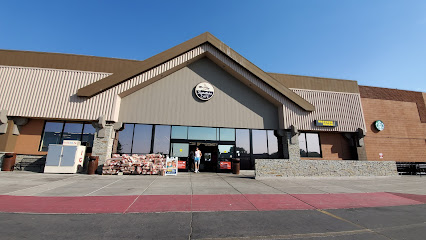
DamPlaza
Explore DamPlaza in Page, Arizona – a vibrant shopping mall with diverse stores, delightful dining, and community events that capture the local spirit.
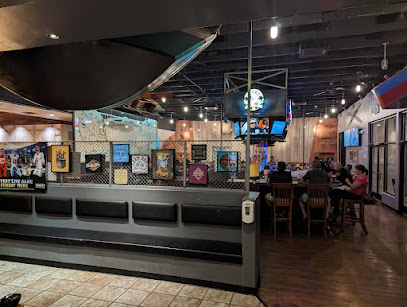
Dollar General
Explore Dollar General in Page, Arizona for budget-friendly shopping with a variety of essentials, seasonal goods, and delightful finds.

Lake Powell Massage & Spa Boutique
Discover ultimate relaxation at Lake Powell Massage & Spa Boutique, where serenity meets rejuvenation in the heart of Arizona's stunning landscapes.

Dollar Tree
Shop smart at Dollar Tree in Page, Arizona, and discover a world of budget-friendly treasures from crafts to snacks and home essentials.
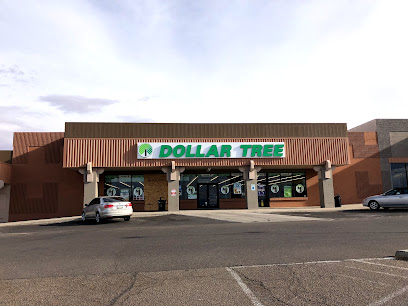
Page Lake Powell Furniture
Discover Page Lake Powell Furniture for quality furnishings and decor in the heart of Arizona's stunning landscapes, perfect for any home or getaway.
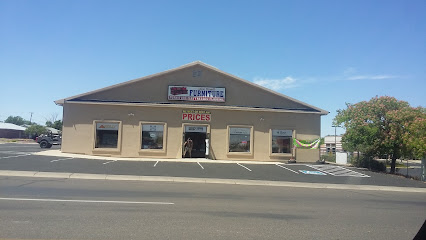
Stix Liquor & Sporting Goods
Explore Stix Liquor & Sporting Goods for a unique blend of spirits and fishing supplies in beautiful Page, Arizona.

Bullfrog Marina Corner Store
Experience the charm of Bullfrog Marina Corner Store, your go-to spot for snacks, essentials, and local insights in the breathtaking Lake Powell area.
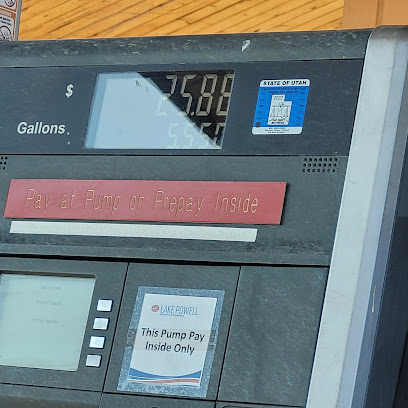
Circle K
Discover convenience at Circle K in Page, Arizona, offering 24/7 access to snacks, gas, coffee, and more, perfect for travelers exploring the Southwest.
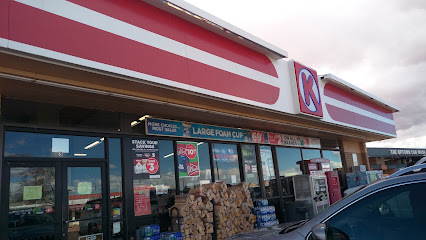
Pow Wow Trading Post
Explore unique collectibles and local crafts at Pow Wow Trading Post in Page, Arizona, a treasure trove for souvenir seekers and art lovers.
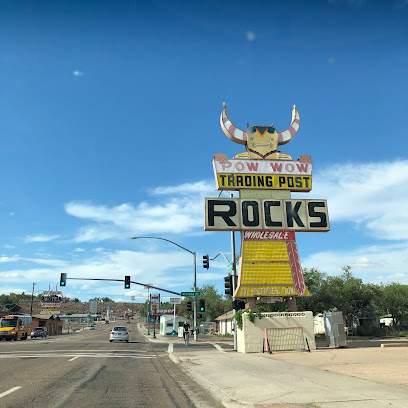
Page Bead Store
Explore the vibrant Page Bead Store in Arizona, where creativity meets craftsmanship in a treasure trove of beautiful beads and artisan jewelry.

Essential bars & hidden hideouts
Big John's Texas BBQ
Experience authentic Southern barbecue at Big John's Texas BBQ in Page, Arizona, where smoky flavors and hospitality await every visitor.
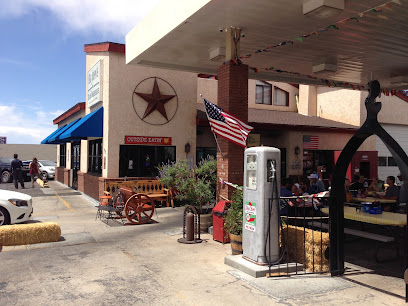
El Tapatio
Experience the vibrant flavors and artistic charm of El Tapatio, a premier Mexican restaurant in Page, Arizona, perfect for every food lover.

Fiesta Mexicana Restaurant
Experience the vibrant flavors of authentic Mexican cuisine at Fiesta Mexicana Restaurant in Page, Arizona.
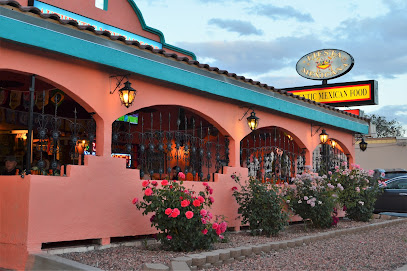
BirdHouse
Discover BirdHouse, Page, Arizona's ultimate fast food destination, serving delicious chicken dishes in a friendly, inviting atmosphere.

Gone West Family Restaurant
Discover the vibrant flavors of the Southwest at Gone West Family Restaurant, where family-friendly dining meets live entertainment.
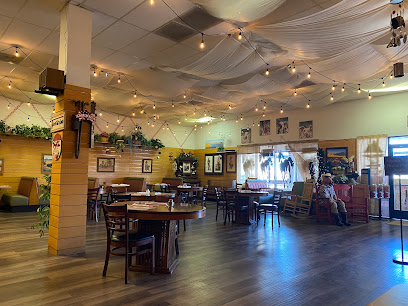
Denny's
Experience a classic American diner offering affordable breakfast favorites in Page, Arizona, the gateway to stunning natural wonders.
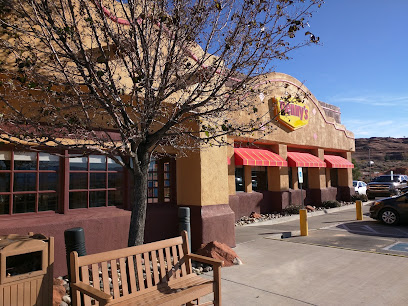
State 48 Tavern
Discover the vibrant flavors of American cuisine at State 48 Tavern, the ultimate bar and grill experience in Page, Arizona.
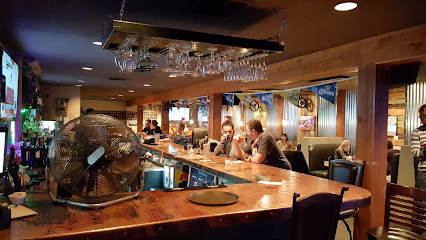
Ranch House Grille
Experience the authentic taste of Southwestern cuisine at Ranch House Grille in Page, AZ, where hearty meals and friendly service await.
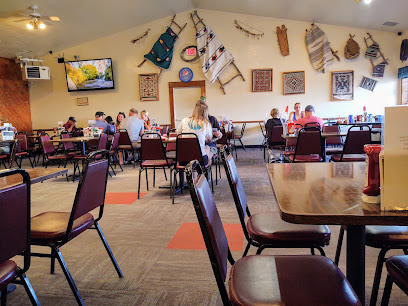
Dam Bar & Grille
Experience the essence of American cuisine at Dam Bar & Grille, a vibrant spot in Page, Arizona, perfect for food lovers and adventurers.
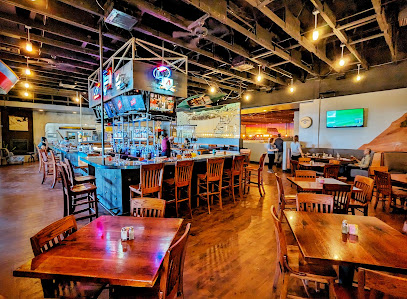
Slackers
Savor mouthwatering burgers and unique American dishes at Slackers, a beloved dining destination in Page, Arizona.
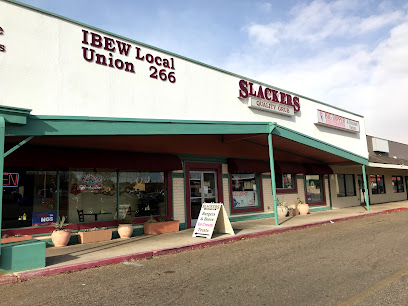
Strombolli’s Italian Restaurant & Pizzeria
Experience authentic Italian cuisine at Strombolli’s Italian Restaurant & Pizzeria, the perfect blend of flavor and atmosphere in Page, Arizona.
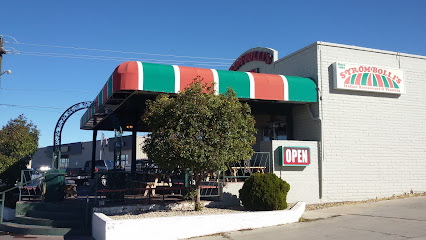
Sunset 89
Discover a vibrant bar and restaurant in Page, Arizona, where unique cocktails and delicious food meet stunning sunset views.
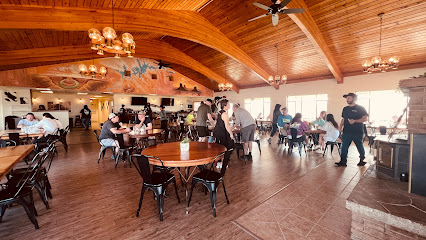
Bonkers Restaurant
Discover Bonkers Restaurant in Page, Arizona for an unforgettable dining experience blending Italian and American flavors, perfect for tourists exploring the area.
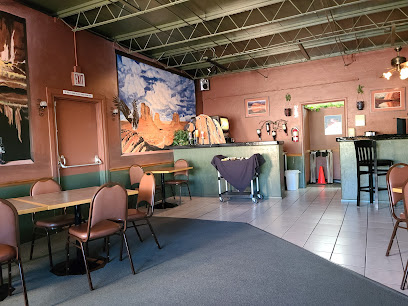
Grand Canyon Brewing +Distillery
Experience the best of American cuisine and craft brewing at Grand Canyon Brewing + Distillery, where flavor meets adventure in Page, Arizona.
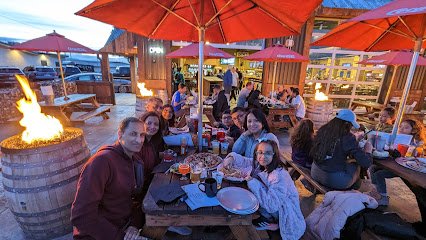
Local Phrases about Lake Powell
-
- HelloYá'át'ééh
[yah-ah-tay] - GoodbyeAdíos
[ah-dee-ohs] - YesTáá
[tah] - NoDibé
[dee-bay] - Please/You're welcomeAhe'hee
[ah-hay-hee] - Thank youAhéhee'
[ah-hay-hay] - Excuse me/SorryMąąhą́
[mahn-hahn] - How are you?Anaa'íníshní
[ah-nah-ee-nish-nee] - Fine. And you?Háádóó
[hah-doh] - Do you speak English?Bizaad yee at'é?
[bee-zaad yee ah-tay] - I don't understandBééhózin
[bay-hoh-zeen]
- HelloYá'át'ééh
-
- I'd like to see the menu, pleaseYá'át'ééh, baa sidáan nitsaago nanoosh?
[yah-ah-tay, bah see-daan nee-tsah-go nah-noh-sh] - I don't eat meatBééhózin łikizí
[bay-hoh-zeen lee-kee-zee] - Cheers!Háágo nílį́!
[hah-go nee-lee] - I would like to pay, pleaseNa'nił doo baa hózhǫ́
[nah-nee-dohl doo bah hoh-zhoh]
- I'd like to see the menu, pleaseYá'át'ééh, baa sidáan nitsaago nanoosh?
-
- Help!Azhóó!
[ah-zhoh] - Go away!Jaa
[jah] - Call the Police!Ayóóshíí nihí
[ah-yoh-shee nee-hee] - Call a doctor!Bi'íílíí nihí
[bee-ee-lee nee-hee] - I'm lostDíí bíla'ash
[dee bee-lah-ahsh] - I'm illNihí
[nee-hee]
- Help!Azhóó!
-
- I'd like to buy...Yá'át'ééh, siigo nitsáago
[yah-ah-tay, see-go nee-tsaah-go] - I'm just lookingBééhózin yilt'é
[bay-hoh-zeen yeel-tay] - How much is it?Há'át'íísh baa hózhǫ́?
[hah-ah-teesh bah hoh-zhoh] - That's too expensiveNihííłtso
[nee-hee-tsoh] - Can you lower the price?Háadis daaztsilígi?
[hah-ah-dees dah-tsee-lee-gee]
- I'd like to buy...Yá'át'ééh, siigo nitsáago
-
- What time is it?T'áá hóyi?
[taa hoh-yee] - It's one o'clockNeiłtsoh baa hóyi
[nayl-tsoh bah hoh-yee] - Half past (10)Naakai bá hóló
[nah-kai bah hoh-loh] - MorningNízí
[nee-zee] - AfternoonT'áá hwóóh
[taa hwoh] - EveningT'áá ałníí
[taa al-nee] - YesterdayK'éí
[kay] - TodayDííjí
[dee-jee] - TomorrowNihí
[nee-hee] - 1Táá
[tah] - 2Naaki
[nah-kee] - 3Tááłá
[taa-lah] - 4Díí
[dee] - 5Ashdla'
[ash-dlah] - 6Hastąą
[hah-stah] - 7Tseebíí
[tsee-bee] - 8T'áalii
[taa-lee] - 9T'áah
[taah] - 10Bilasáana
[bee-lah-sah-nah]
- What time is it?T'áá hóyi?
-
- Where's a/the...?Níshłí
[neesh-lee] - What's the address?Béésh bizaad
[bay-sh bee-zaad] - Can you show me (on the map)?Shik'éí neiníł nihałtsoos
[shee-kay nay-neel nee-hahl-tsohs] - When's the next (bus)?Háadishchíí ní
[hah-ah-deesh-chee nee] - A ticket (to ....)Béésh baa hóló
[bay-sh bah hoh-loh]
- Where's a/the...?Níshłí
History of Lake Powell
-
Lake Powell, a man-made reservoir in the heart of the American Southwest, was formed by the construction of the Glen Canyon Dam on the Colorado River. This monumental project, which began in 1956 and was completed in 1963, created a vast body of water that stretches across northern Arizona and southern Utah. Named after the explorer John Wesley Powell, who led an expedition through the Grand Canyon in 1869, Lake Powell is now a popular destination for boating, fishing, and outdoor recreation.
-
The Glen Canyon Dam, which created Lake Powell, stands as a testament to 20th-century engineering prowess. Standing at 710 feet (216 meters) high, the dam was built to provide water storage, hydroelectric power, and recreational opportunities. The dam's construction was controversial due to its impact on the natural landscape and the displacement of indigenous communities. Today, it remains a critical infrastructure component and a key feature of the Colorado River Storage Project.
-
John Wesley Powell, a pioneering explorer, led the first documented expedition down the Colorado River through the Grand Canyon in 1869. His journey provided invaluable insights into the geology and geography of the region. Powell's name was later given to the reservoir created by the Glen Canyon Dam, honoring his contributions to the exploration and understanding of the American West.
-
Before the creation of Lake Powell, the region was home to several indigenous communities, including the Navajo, Hopi, and Paiute tribes. These peoples have a rich cultural heritage and deep spiritual connections to the land. The flooding of Glen Canyon submerged numerous archaeological sites and sacred places. Efforts have been made to document and preserve the cultural heritage of the area, with ongoing collaborations between indigenous groups and researchers.
-
The creation of Lake Powell significantly altered the natural environment of the Colorado River and its surrounding ecosystems. The submersion of Glen Canyon led to the loss of unique geological formations and habitats. Environmentalists have long debated the dam's impact, with some advocating for its removal to restore the natural flow of the river. Conservation efforts continue to balance the reservoir's recreational use with the need to protect the area's natural and cultural resources.
-
One of the most iconic landmarks near Lake Powell is the Rainbow Bridge, a natural sandstone arch that is one of the largest in the world. Designated as a National Monument in 1910, Rainbow Bridge holds significant cultural and spiritual importance for the Navajo people. Accessible by boat from Lake Powell, the monument attracts visitors who marvel at its majestic beauty and the stories it embodies.
-
Since its creation, Lake Powell has become a major recreational destination, attracting millions of visitors each year. The lake offers a wide range of activities, including boating, fishing, swimming, and hiking. Houseboats are a popular way to explore the lake's many secluded coves and canyons. The development of marinas, campgrounds, and visitor centers has transformed the area into a thriving hub for outdoor enthusiasts.
-
Lake Powell's stunning landscapes have made it a popular filming location for movies and television shows. Its dramatic canyons and vast waterscapes have appeared in films such as 'Planet of the Apes' (1968) and 'Gravity' (2013). The lake's otherworldly scenery continues to inspire filmmakers and artists, contributing to its cultural significance and allure.
Lake Powell Essentials
-
Lake Powell is situated in northern Arizona and southern Utah. The nearest major airport is Page Municipal Airport (PGA) in Page, Arizona, which offers daily flights from Phoenix and Denver. Alternatively, you can fly into Las Vegas McCarran International Airport (LAS) or Salt Lake City International Airport (SLC) and drive to Lake Powell, which is approximately a 4 to 5-hour drive from either city. Shuttle services and rental cars are available at these airports.
-
To explore Lake Powell, renting a car is highly recommended as public transportation options are limited. Within the lake area, houseboats, speedboats, and kayaks are popular modes of transportation to navigate the reservoir and explore its numerous canyons and bays. Boat rentals are available at marinas such as Wahweap Marina and Antelope Point Marina.
-
The official currency is the US Dollar (USD). Credit and debit cards are widely accepted in Page, Arizona, and at Lake Powell marinas. ATMs are available in Page, but it's advisable to carry some cash for smaller vendors and remote areas where card payment may not be an option.
-
Lake Powell is generally a safe destination for tourists. However, it is important to take standard safety precautions. Avoid leaving valuables in your car and be mindful of your belongings. The town of Page and its surrounding areas do not have high crime rates targeting tourists. When exploring the lake, always wear a life vest, be aware of weather conditions, and follow boating safety regulations.
-
In case of emergency, dial 911 for immediate assistance. The nearest medical facility is Page Hospital, located in Page, Arizona. It is advisable to have travel insurance that covers medical emergencies and adventure activities such as boating. For minor health issues, there are pharmacies in Page where you can purchase over-the-counter medications.
-
Fashion: Do wear comfortable, weather-appropriate clothing and footwear. Sun protection is essential, including hats, sunglasses, and sunscreen. Avoid wearing flip-flops while hiking. Religion: Do respect Native American cultural sites and artifacts. Public Transport: Do plan for limited public transportation options. Renting a car or using boat services is recommended. Greetings: Do greet locals with a friendly 'Hello' or 'Hi.' A firm handshake is also common. Eating & Drinking: Do try local cuisine and drink plenty of water to stay hydrated. Don't leave trash behind; always follow 'Leave No Trace' principles.
-
To experience Lake Powell like a local, consider visiting during the shoulder seasons (spring and fall) when the weather is pleasant, and crowds are smaller. Engage with locals in Page for insights on hidden gems and best practices for navigating the lake. Don't miss iconic spots like Rainbow Bridge National Monument, Antelope Canyon, and Horseshoe Bend. Renting a houseboat for a few days can give you a unique and immersive experience of the lake.
Nearby Cities to Lake Powell
-
Things To Do in Escalante
-
Things To Do in Bryce Canyon City
-
Things To Do in Kanab
-
Things To Do in Mt Carmel
-
Things To Do in Panguitch
-
Things To Do in Torrey
-
Things To Do in Grand Canyon Village
-
Things To Do in Springdale
-
Things To Do in Blanding
-
Things To Do in Cedar City
-
Things To Do in Beaver
-
Things To Do in Richfield
-
Things To Do in St. George
-
Things To Do in Flagstaff
-
Things To Do in Moab











